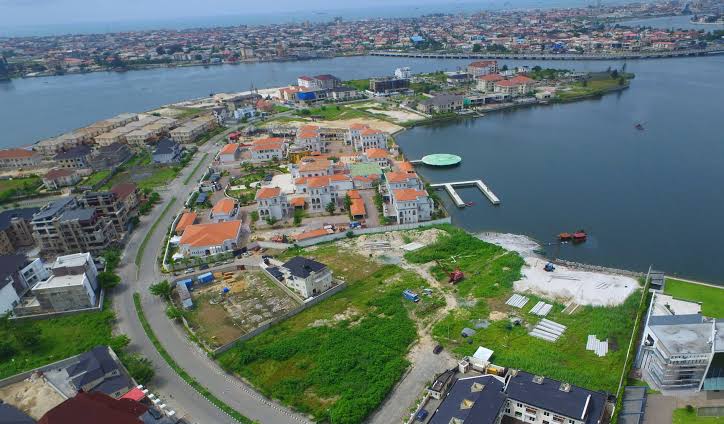The Caribbean and African connections are very strong. This is because they are founded on a shared history, culture, and sense of common identity formed by the slave trade, which forcibly moved more than 10 million Africans to the New World, resulting in huge African Diaspora centres in the Caribbean, and these Africans moved with their rich cultural practises and customs. This common past has left an indelible mark on both places, defining identities and influencing connections. The historical interplay between Africa and the Caribbean is further exemplified by the impact of colonisation and the fight for independence.
This article examines the collaborations that exist between Africa and the Caribbean, stressing their shared history, cultural ties, economic linkages, current collaboration, and possible ways to boost the existing relationship for future purposes.
A rich tapestry of political, economic, cultural, and historical strands weaves together the ties between Africa and the Caribbean. The histories of Africa and the Caribbean are rich and intertwined, spanning from the challenges of the transatlantic slave trade to the vibrant cultural manifestations that cross international boundaries. Understanding the significance of this relationship and maximising its potential for cooperation and mutual gain are essential.
However, it is paramount to take a look at the existing ties between the Caribbean and Africa.
Economic Ties
The African-Caribbean relationship has always been defined by trade and cooperation. African countries export commodities such as cocoa, coffee, and bananas to the Caribbean, while the Caribbean Markets African exports such as oil, minerals, and textiles. Furthermore, investment and remittances from the Caribbean diaspora in Africa have contributed to the economic development of both regions. These economic links have laid the groundwork for future collaboration and mutual benefit.
Political Ties
In recent decades, political cooperation between Africa and the Caribbean has gained power. Both areas have realised the value of collaboration and have formed organisations for communication and cooperation, such as the Africa-Caribbean-Pacific (ACP) group. Climate change, environmental development, and cultural exchange have all played a role in this cooperation. Political alliances have also been forged through organisations such as the African Union (AU) and the Caribbean Community (CARICOM), further cementing the African-Caribbean relationship on a greater scale.
Cultural Ties
The deep cultural link that exists between the two regions is one of the most visible characteristics of the African-Caribbean relationship. The Caribbean’s music, dance, art, language, and food have all been heavily influenced by African cultural history. The bright rhythms of reggae, calypso, and Afrobeat are only a few of the rich Afro-Caribbean musical traditions with African roots. Similarly, rituals, folklore, and traditional practises have been kept and passed down through generations, demonstrating African culture’s enduring influence throughout the Caribbean.
Shared Opportunities and Limitations
While the African-Caribbean connection has prospered in many areas, it is not without its limitations. Economic inequality, political insecurity, and geographical distance have all posed challenges to further integration and collaboration. These challenges, however, create chances for growth and development. Strengthening trade connections, encouraging tourism, improving educational exchanges, and fostering cultural understanding are all ways to nurture and deepen the African-Caribbean relationship.
The Caribbean and Africa have significant prospects for partnership and trade. Africa has enormous natural resources, rising markets, and a growing middle class, whereas the Caribbean has a varied range of tourism, services, and expertise in industries such as agriculture, fisheries, and renewable energy. Both regions can boost economic growth, provide job opportunities, and foster technological advancements by capitalising on their complementary capabilities.
However, there are major variables that must be considered in order to develop the business and cultural link between the Caribbean and Africa:
Improving Educational and Technological Cooperation
Collaboration in the sectors of education and technology can generate enormous benefits. Scholarships, student exchange programmes, and collaborations between academic institutions can promote knowledge sharing, research collaboration, and skill development. Furthermore, harnessing technology through digital platforms and e-commerce can open up new possibilities for company opportunity and innovation.
Diaspora Engagement
The African diaspora in the Caribbean can play an important role in establishing business and cultural linkages between the two regions. Governments and organisations should actively engage and support diaspora groups by making trade, investment, and cultural exchange initiatives more accessible to them. Encouraging expatriate entrepreneurs to invest and set up shop in Africa can help create jobs and contribute to economic development.
Improving Trade and Investment
Both areas should work to improve trade and investment links. This can be accomplished through the formation of bilateral agreements, the reduction of trade barriers, and the facilitation of market access for goods and services. To develop stronger ties, governments, firms, and entrepreneurs should actively encourage trade missions, business forums, and investment conferences. 4
Tourism and Cultural Interchange Promotion
Tourism may be a potent stimulus for cultural interchange and economic progress. The Caribbean is known for its stunning beaches, loud music, and rich cultural legacy, whereas Africa is known for its various landscapes, animals, and ancient historical monuments. Tourism from each region can be attracted through joint marketing campaigns and travel incentives, encouraging cross-cultural understanding and economic benefits.
Improving Transportation Infrastructure and Connectivity:
Improving transportation infrastructure and connectivity is critical for efficient trade and travel between the Caribbean and Africa. Investing in improved air and maritime connectivity will ease the flow of people and products, allowing for more efficient economic transactions and cultural exchange. Collaboration among governments, regional organisations, and private-sector partners is critical to building these critical links.
The Caribbean-Africa business and cultural partnership has enormous potential for expansion and collaboration. To strengthen this relationship, a diversified approach that includes commerce and investment promotion, infrastructure development, tourism, educational cooperation, and the active participation of the diaspora is required. Both regions can construct a bright and sustainable future together by harnessing a common cultural history, discovering complementary economic strengths, and stressing mutual advantages.
The Caribbean-African connection has a bright future, with both regions expected to profit from stronger linkages in trade, tourism, education, culture, and politics. This bond is motivated by a common history, culture, and battle for social justice. As the two regions grow closer, they are likely to become more vocal supporters of a more egalitarian and sustainable world order that benefits all nations and peoples.


